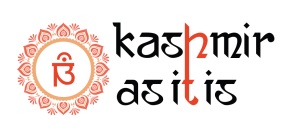NAME – Pandit Zinda Koul was known as (“Masterji”)
Born – He was born in Habbakadal, a city in Srinagar into a Kashmiri Pandit family (1884 – 1965) AD.

Parents – His father was Lakshman Koul Pandit, was indifferent to his formal education and Koul had to face many difficulties in his life.
Childhood – It is said that Master Zinda Koul was a bright student and he soon learned all the lessons taught to him, and whenever the teacher was busy, he due to his brilliance, was entrusted with teaching his fellow students. Due to precarious financial condition of his family, was forced to leave his studies. Koul was a school teacher for a long time. After that, he worked as a clerk later retired from the Publicity office of Kashmir as a translator in 1939.
. Contributions – Master Ji did not only prove to be a good teacher, but gradually matured into an Academician. After some time he established his own school and with help of likeminded teachers bought an innovative revolution in the educational scenario of the state.
Master Ji revolutionized the concept of education in the state, which especially proved a boon for imparting modern scientific education to the children of the state. He played a major role in imparting education to the girls, especially of Kashmiri Pundit community and apart from establishing Hindu Educational Society which established Hindu High School and other such educational institutions at Nawa Kadal, Habba Kadal, Sathu Barbarshah and other places in the Srinagar city, he was also instrumental in establishing famous Vasanta and Kashyapa Girls High Schools, which exclusively imparted education to girls. His contribution to Research department of the state is considered to be outstanding and worthy.
Zinda Koul was the first Kashmiri poet to win the Sahitya Academy award for his book of poetry compilations Sumran. It was first published in Devanagari, and later the government had it printed in the Persio-Arabic script. The Sahitya Academy of India gave Koul an award of five thousand rupees for this book. Koul initially wrote in Persian, Hindi, and Urdu. His first poem was Unity and Sympathy, written in 1896 and recited it at the Sanatana Dharm Sabha meeting in Srinagar. Masterji started writing in Kashmiri, in his Kashmiri poetry he has written primarily on devotion, philosophy and peace. Masterji’s poetry has been published in all these four languages. However, he made his name by writing in Kashmiri. His poetry was greatly influenced by Lal Ded and Parmanand. His writing style is mystical and is influenced by bhakti tradition.

In this context of mystic discipline, Masterji has earned by his own right a prominent place in the galaxy of such thinkers who churn their intellect incessantly and groom it to explain the ideal spurning the actual. Masterji did not forget life around him; he did not abjure life even though it was always bitter to him. He was a civil servant by profession but a Savant by nature. As long as he remained in -government service, he acquitted himself very well with undivided dedication to his profession. He drank at the fountain of life most voraciously. Perhaps, this acute sense of responsibility to his profession ignited the first spark of the mission he had to undertake in future. This formative period in his life ushered in the mental ferment which is so necessary for reaching the mystic plane.
Masterji was a profound scholar of Persian. He could not escape the influence and impact of great Persian mystics like Shams Tabrez, Maulana Rumi, Hafiz Shirazi and others. Masterji built his personality brick by brick. The foundation for this was provided by the Hindu mystic lore especially by the Kashmir Shaivism. Vedanta and the Upanishads also acted as the cementing link to make it more broad-based. Both are portrayed most eloquently in his ‘Sumaran’. Masterji’s intuitive mysticism is a happy blend of Hindu mystic thought and Islamic Sufism. He toiled hard to attain to that plane of self-consciousness where the material contours melt away before the effulgence of the ‘spirit’. Self-discipline in the case of the first and self-education in the case of the second are in them self a worthy preamble to self-dependence, and this in its turn paves the way to self-consciousness. Masterji’s unambiguous attitude to mysticism is of synthesis in which intuition and intellect form the woof and the warp.
Masterji was a conscious artist like Goswami Tulsidas who without mincing words beckons to us in undertones, by implication, to make this life a veritable bridge to the life-beyond. He makes a happy compromise between the self and the super- self, matter and spirit, enjoyment and renunciation, intellect and intuition. He does not leave us guessing. That is, perhaps his most substantial contribution to our unbroken heritage of mysticism.
References:
https://en.wikipedia.org/wiki/Zinda_Kaul
http://www.ikashmir.net/zindakoul/article2.html
https://www.dailyexcelsior.com/master-zinda-koul-a-literary-genius-educationist/





